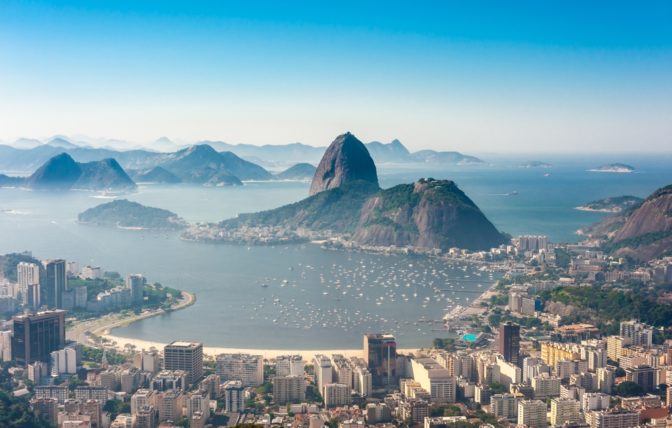
 "
"

 "
"

The city is seeking to become a halal tourist destination, attracting Muslims from all over the world, following a sharp drop in tourists caused by the coronavirus pandemic. The concept did not appear out of nowhere. Foz do Iguaçu, which is part of a tri-border area with Argentina’s Puerto Iguaz and Paraguay’s Ciudad del Este, has a population of 20,000 Arabs, or roughly 7% of its 260,000 residents, many of whom are Muslims.
The Omar ibn Al-Khattab Mosque, a notable Islamic house of worship in Latin America, is the most obvious evidence of the region’s Arab history. There are numerous Arab-owned restaurants and shops in Foz do Iguaçu, and local travel guides provide an “Arab itinerary” as part of their usual city tours.
Ali Saifi, CEO of Cdial Halal, a halal certification company in Brazil, said: “Those are great advantages for us. There’s already a great halal infrastructure to serve the local community. We just need to take those principles to hotels, with the government’s help.”
Saifi was one of the project’s architects, and the city’s mayor, Chico Brasileiro, quickly agreed to the plan, fully acknowledging the world’s 1.9 billion Muslims. “We want to expand their permanency here by making them feel comfortable with their families.” It can be difficult to feel at ease during foreign trips to non-Muslim countries, said local Sheikh Oussama El-Zahed.
“Food is a major concern when a Muslim travel abroad. Especially when we’re with our families, we get very anxious about it. The idea here is to offer a 100 percent halal travel package,” he added.
Cdial Halal will provide halal food training and best practices for welcoming Muslims to Foz do Iguaçu’s tourism industry personnel. Not only will hotels have a halal meal, but they will also have designated prayer areas for Muslims.